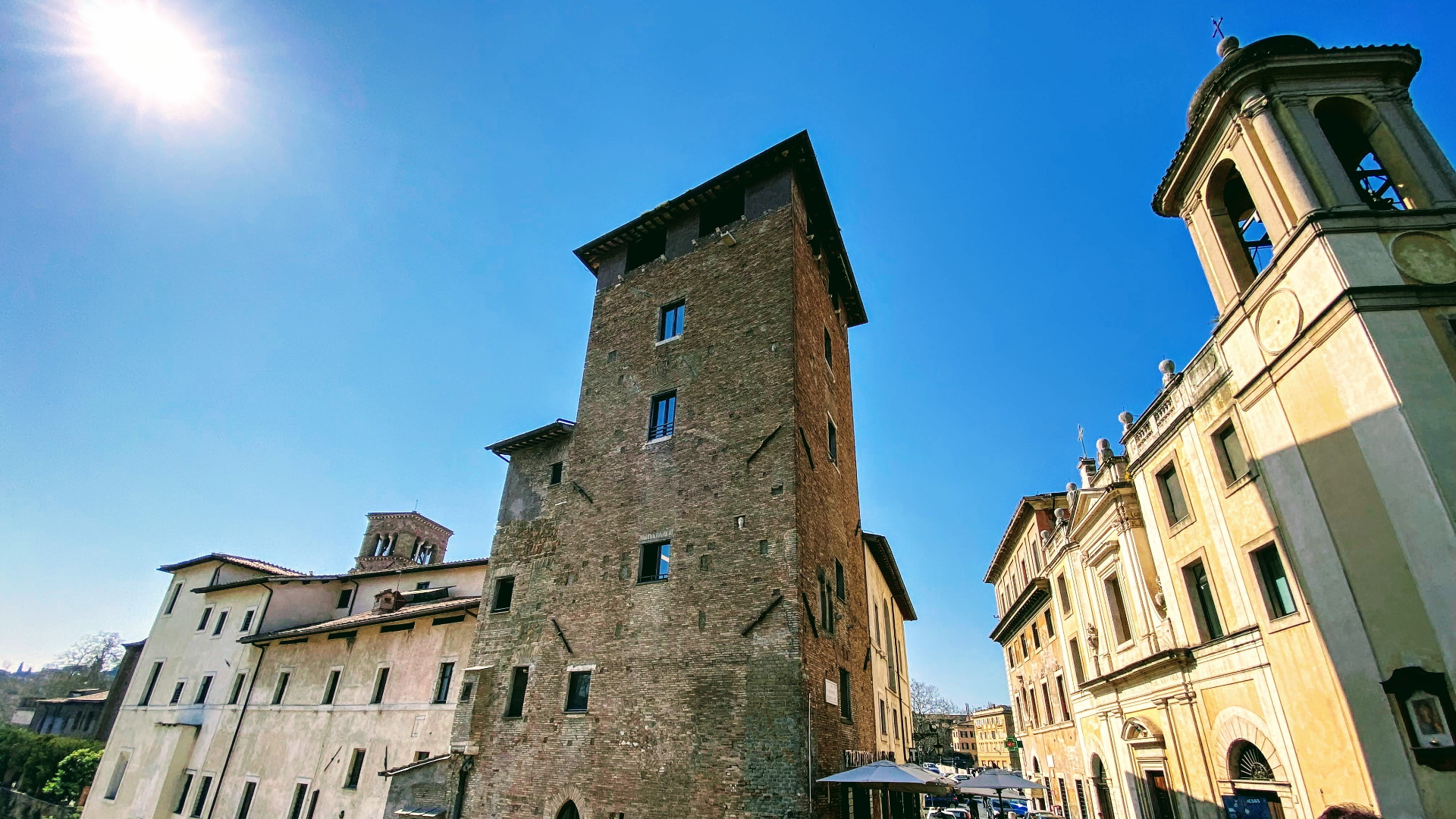
On the Tiber Island, in the direction of the Jewish Ghetto, is a medieval tower built to guard the ancient Ponte Fabricio, also called Ponte Quattro Capi (Bridge of the Four Heads).
Coveted thanks to its strategic position, it became the property of the most powerful Roman aristocratic families: built by the Pierleoni, probably in the 12th century, it later belonged to the Savelli and, from the 14th century, to the Caetani, from which it takes its current name.
The tower, made of brick, has three orders of ancient windows and part of the marble works and is what remains of a complex of buildings built over four centuries.
Over time, it was a fortress, refuge and sumptuous residence. Here, three historical figures settled to escape the antipope Clement III: First, Pope Victor III and the famous Matilda of Canossa - whose funeral monument, in Saint Peter's Basilica, was built by Gian Lorenzo Bernini and his pupil Stefano Speranza -, and later Pope Urban II.
The building was abandoned by the Caetani family in the 16th century, due to the frequent Tiber floods, and annexed to the convent of the Franciscan Friars Minor in the 17th century. The entire structure, known as the "Lazzaretto brutto" (bad lazaret), was dedicated to the care of sicks during the plague of 1656.
It is also known as the “Torre della Pulzella” (Tower of the Maid) for the little female marble head, set in the masonry. According to legend, the fascinating sculpted face depicted a young noblewoman who lived in 1350. She was locked up in the tower for refusing to marry an aristocrat chosen by her family, waiting for her beloved to return from the war. The sculpture actually dates back to Roman times, although, with its "stone" gaze towards the bridge, it seems to challenge those passing by to discover the identity that lies behind the enigmatic face eroded by time.
The Tiber Island
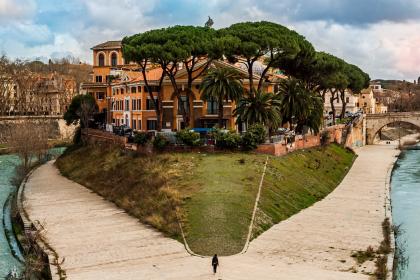
 Condividi
Condividi
The river Tiber

According to legend, the history of Rome begins right here
Pons Fabricius
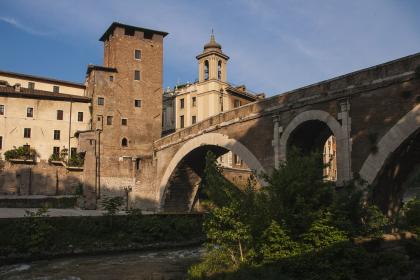
 Condividi
Condividi
The Church of San Bartolomeo all’Isola
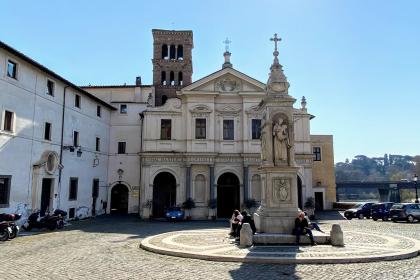
 Condividi
Condividi
The old Jewish Quarter
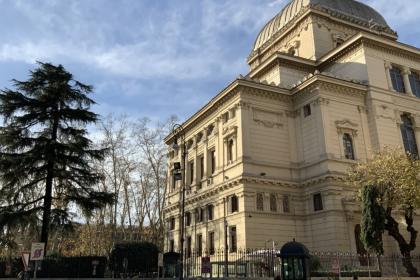
 Condividi
Condividi
Ponte Cestio
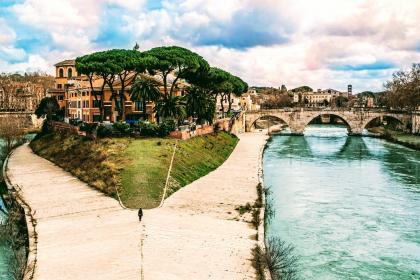
 Condividi
Condividi
The Portico of Octavia
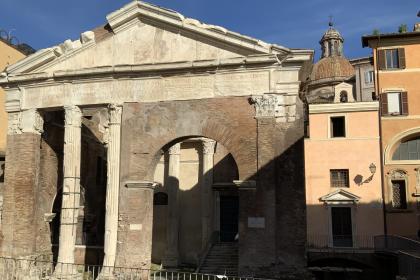
 Condividi
Condividi
The Great Temple
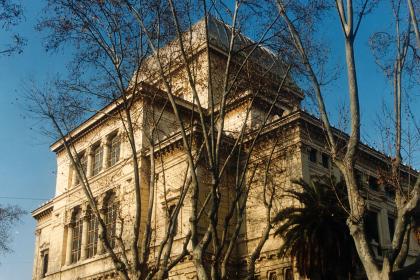
 Condividi
Condividi












































